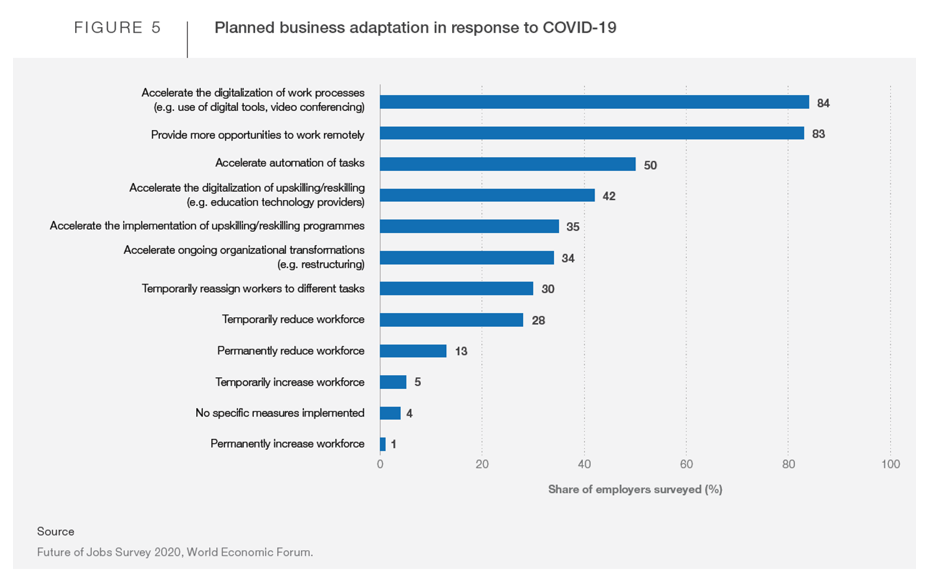Acquire new skills, a necessity in 2022
Did you know that 94% of business leaders
expect employees to learn new skills in the workplace?
Being left behind in a world that is advancing by leaps and bounds thanks to technology is not an option. But, according to figures in the World Economic Forum (WEF) Future Jobs Report, skills gaps remain high as the skills in demand in jobs change over the next five years.

In this article, we share some highlights from the WEF report that is key to understanding the evolution of companies, employers, and employees:
- Top skills employers see as vital for the run-up to 2025 include critical thinking and analysis, problem-solving, and self-management skills such as active learning, resilience, tolerance to stress, and flexibility.
- On average, companies estimate that around 40% of workers will require six months or less of retraining and 94% of business leaders report that they expect employees to gain new skills on the job, a sharp increase from 65% in 2018.
- 84% of employers are ready to rapidly digitize processes, including a significant expansion of remote work, with the potential to move 44% of their workforce to operate remotely.
- ⅓ of employers also expect to take steps to create a sense of community, connection, and belonging among employees through digital tools, and thus address the well-being challenges posed by the shift to remote work.
- X4 is the increase in people seeking online learning opportunities through their own initiative, X5 in the provision of online learning opportunities by employers for their workers, and X9 in the enrollment of students they access online.
- Currently, employed people are placing a greater emphasis on personal development courses, which have seen a growth of 88% among that population. Those who are unemployed have placed greater emphasis on learning digital skills such as data analysis, computing, and information technology.
- The window of opportunity to retrain and upskill workers has shortened in the recently tightened labor market. This applies to workers who are likely to remain in their jobs, as well as those who are at risk of losing their jobs due to the recession-related rise in unemployment and who can no longer hope to retrain on the job. For those workers who will remain in their roles, the proportion of basic skills that will change in the next five years is 40%, and 50% of all employees will need retraining (up to 4%).
- Despite the current economic downturn, the vast majority of employers recognize the value of investing in human capital. An average of 66% of employers surveyed expect to see a return on their investment in upskilling and upskilling within a year.
- On average, employers expect to offer training and refresher training to just over 70% of their employees by 2025. However, employee participation in those courses lags behind, with only 42% of employees taking up training opportunities. Employer-supported training and retraining.
Do not wait any longer, take action and take advantage of all the existing opportunities to stand out in the professional world.